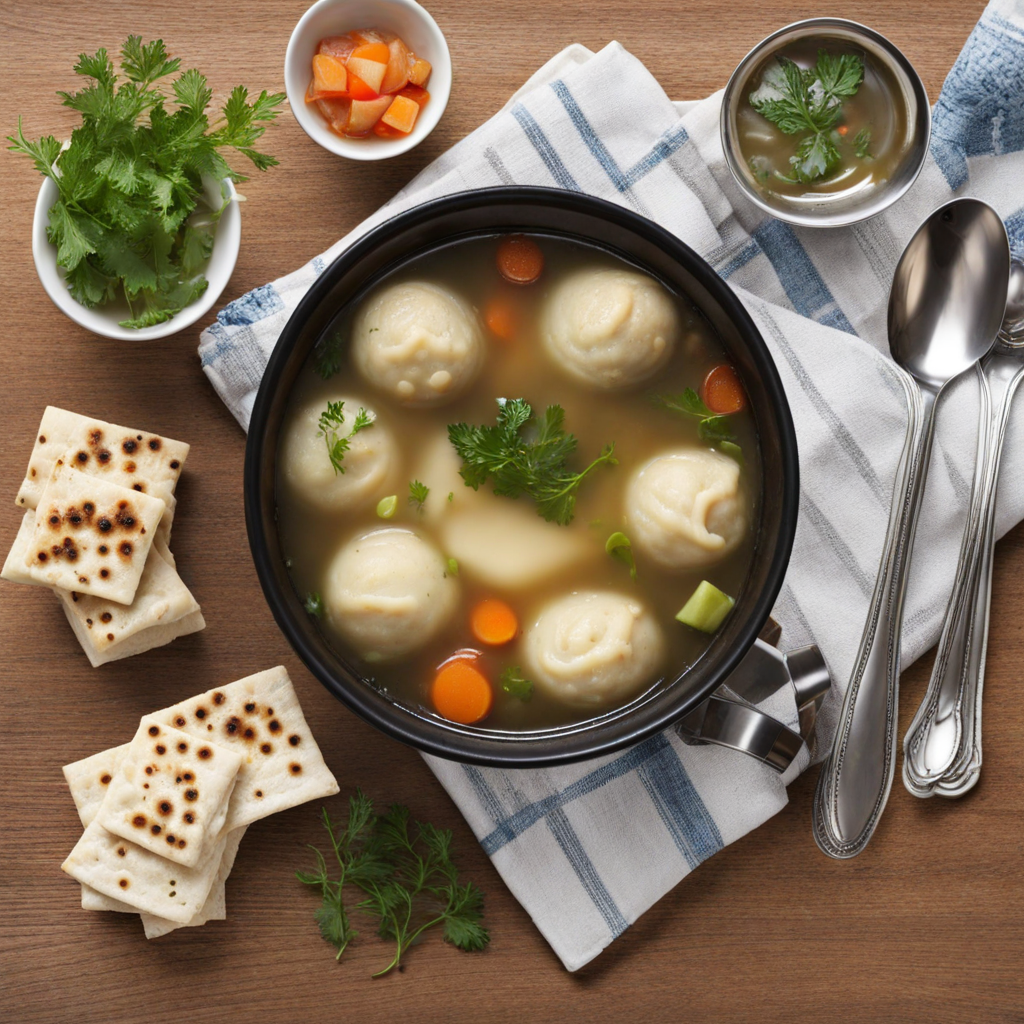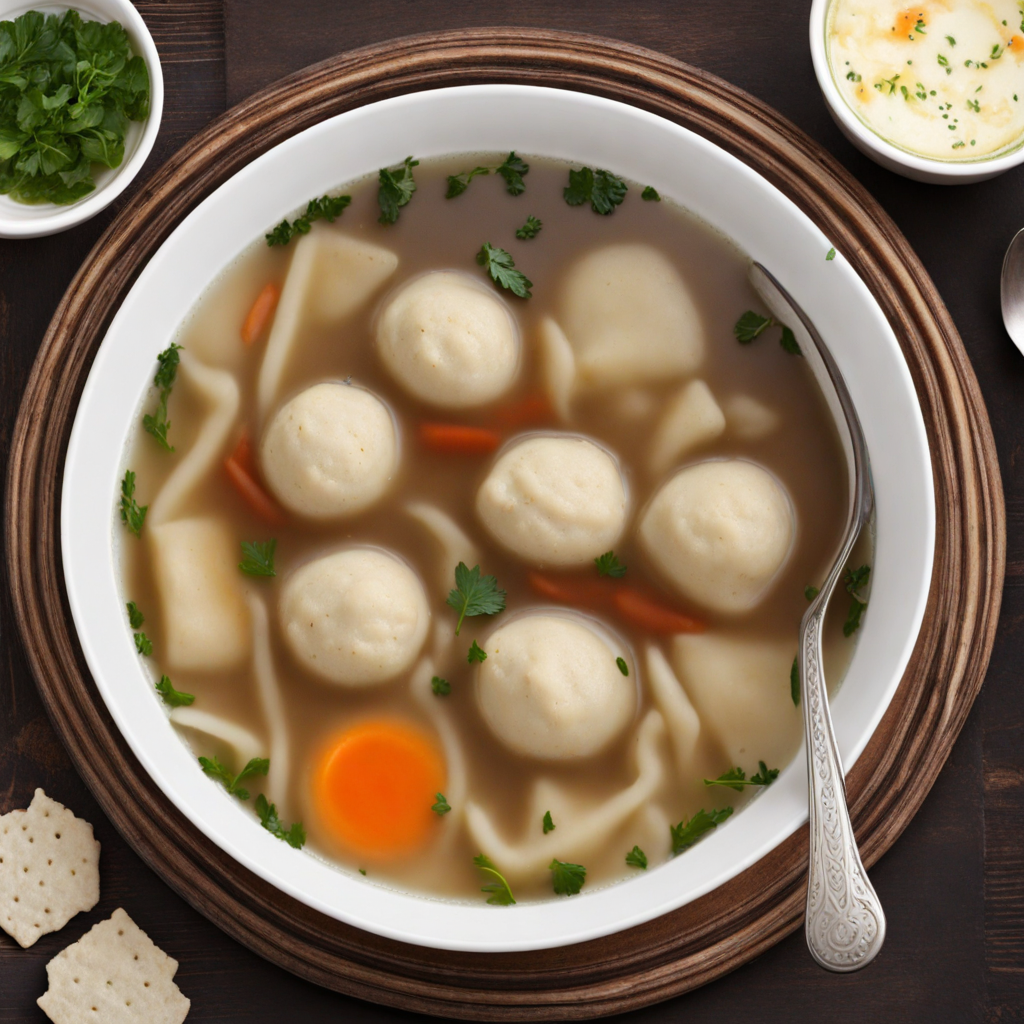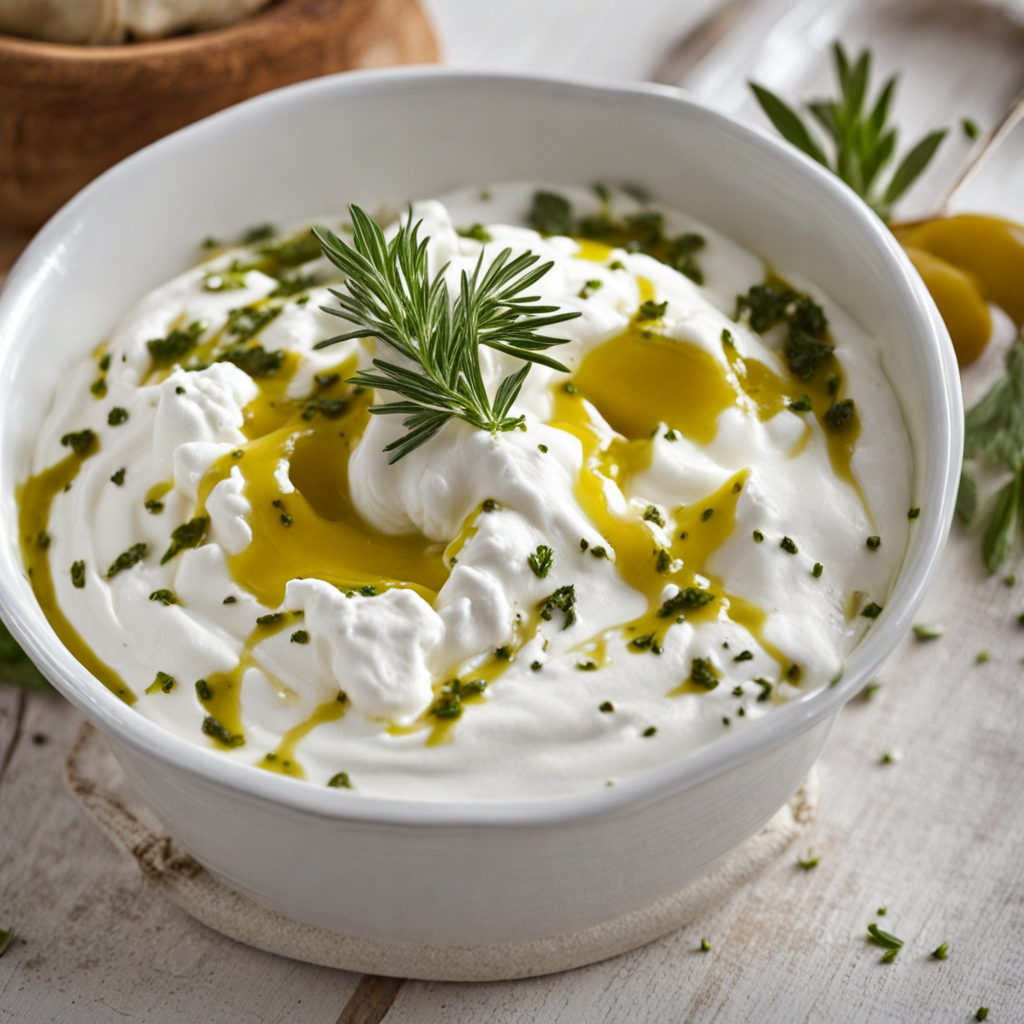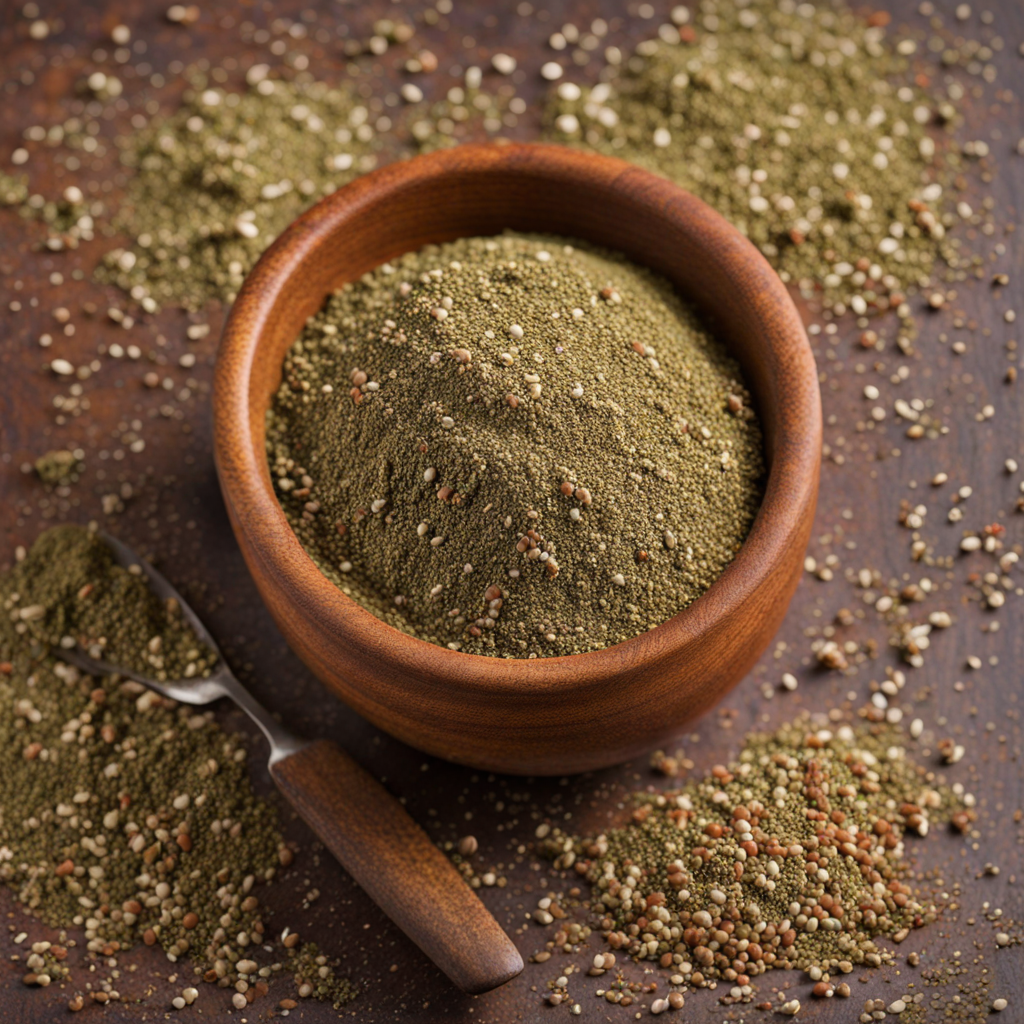Matzah Ball Soup
Matzah Ball Soup is a cherished dish in Israeli cuisine, particularly enjoyed during Jewish holidays and gatherings. The soup features fluffy matzah balls, made from a mixture of matzah meal, eggs, water, and fat, traditionally schmaltz (rendered chicken fat). These dumplings are light yet hearty, absorbing the flavorful broth they simmer in, creating a delightful contrast in texture. The broth itself is typically a rich chicken stock, infused with aromatic herbs and spices like dill, parsley, and sometimes a hint of garlic, making it both comforting and nourishing. As you take your first spoonful, the warmth of the broth envelops your senses, while the matzah balls provide a gentle, pillowy bite. The combination of flavors dances on your palate, with the savory chicken taste complemented by the freshness of the herbs. It's a dish that evokes feelings of home and tradition, often served with vegetables like carrots and celery floating in the broth, adding a slight sweetness and crunch to each mouthful. Matzah Ball Soup is more than just a meal; it’s a cultural experience that connects generations. Often enjoyed during Passover, it symbolizes resilience and the importance of family gatherings. Each family may have its own recipe, leading to variations in flavor and texture, but the essence of the dish remains the same—a heartwarming soup that brings people together around the table. Discovering Matzah Ball Soup is not just about tasting a new food; it’s about savoring a piece of history and tradition that fills both the stomach and the soul.
How It Became This Dish
Origin of Matzo Ball Soup Matzo ball soup, or "מרק כדורי מצה" in Hebrew, is a traditional Jewish dish that has become a staple in Israeli cuisine as well as in Jewish communities around the world. Its origins can be traced back to Ashkenazi Jews in Eastern Europe, particularly in the regions of Poland, Ukraine, and Russia. The dish has deep roots in Jewish culinary traditions, particularly during Passover, when leavened bread is forbidden, and matzo (unleavened bread) becomes the primary staple. The matzo ball itself is made from matzo meal, which is ground matzo that is often mixed with eggs, water, and fat—usually chicken fat or oil. This mixture is then shaped into balls and boiled in a rich chicken broth. The creation of matzo meal and subsequent matzo balls was born out of the need to adapt traditional recipes to the constraints of Passover, leading to an inventive culinary evolution. As Jewish immigrants moved from Eastern Europe to the Americas in the late 19th and early 20th centuries, they brought this dish with them, introducing it to new audiences and further cementing its place in Jewish culture. Cultural Significance Matzo ball soup holds a significant cultural place within Jewish traditions, particularly during the Passover Seder—a ceremonial dinner that marks the beginning of the Passover holiday. The soup is often served as a first course, symbolizing comfort and nurturing in the face of historical adversities faced by the Jewish people. The act of making matzo balls can also be seen as a familial tradition, often passed down through generations. Each family may have its own secret recipe or method for preparing the soup, which can lead to regional variations in flavor and texture. In Israeli culture, matzo ball soup transcends its roots and has become a beloved dish enjoyed by people of all backgrounds. It is often associated with warmth, family gatherings, and the celebration of Jewish identity. The soup's comforting qualities make it a popular choice during times of illness or distress, further embedding it in the fabric of Israeli culinary life. This dish serves not only as nourishment but also as a symbol of resilience and continuity within the Jewish diaspora. Development Over Time As matzo ball soup spread beyond its Eastern European beginnings, it underwent various adaptations and innovations. In the United States, the dish became a hallmark of Jewish delis, with various chefs putting their unique spins on the recipe. Some variations include adding herbs such as dill or parsley for additional flavor, while others may incorporate ingredients like spinach or garlic. The matzo balls themselves often vary in size and texture, ranging from light and fluffy to dense and chewy, depending on personal preference and family traditions. In Israel, matzo ball soup has also evolved, influenced by the diverse culinary traditions brought by Jewish immigrants from around the world, including Sephardic and Mizrahi cuisines. This infusion of flavors and techniques has led to innovative variations that incorporate local ingredients and spices. For instance, some Israeli versions might include chickpeas or use different types of broth, such as vegetable or beef stock, to cater to a broader audience. The creativity surrounding this dish reflects the broader evolution of Israeli cuisine as a melting pot of cultures and traditions. Modern Context In contemporary Israel, matzo ball soup remains a beloved dish, often served during Jewish holidays and family gatherings. Its presence in restaurants and homes serves as a reminder of the deep connections between food, culture, and identity. The soup is frequently featured on menus in both casual and upscale dining establishments, highlighting its versatility and enduring popularity. Moreover, matzo ball soup has found its way into popular culture, often depicted in films, television shows, and literature as a quintessential Jewish comfort food. Its portrayal serves to reinforce the dish's significance as a symbol of love, care, and tradition. In addition, the soup's presence in various culinary events and festivals showcases the pride surrounding this dish within the Jewish community. Conclusion Matzo ball soup is more than just a dish; it is a representation of cultural heritage, familial bonds, and the resilience of a people. Its journey from Eastern Europe to the heart of Israeli cuisine encapsulates the adaptability of culinary traditions and the enduring nature of food as a means of preserving cultural identity. Today, matzo ball soup continues to bring comfort and joy to many, intertwining the past with the present in every warm bowl served.
You may like
Discover local flavors from Israel







